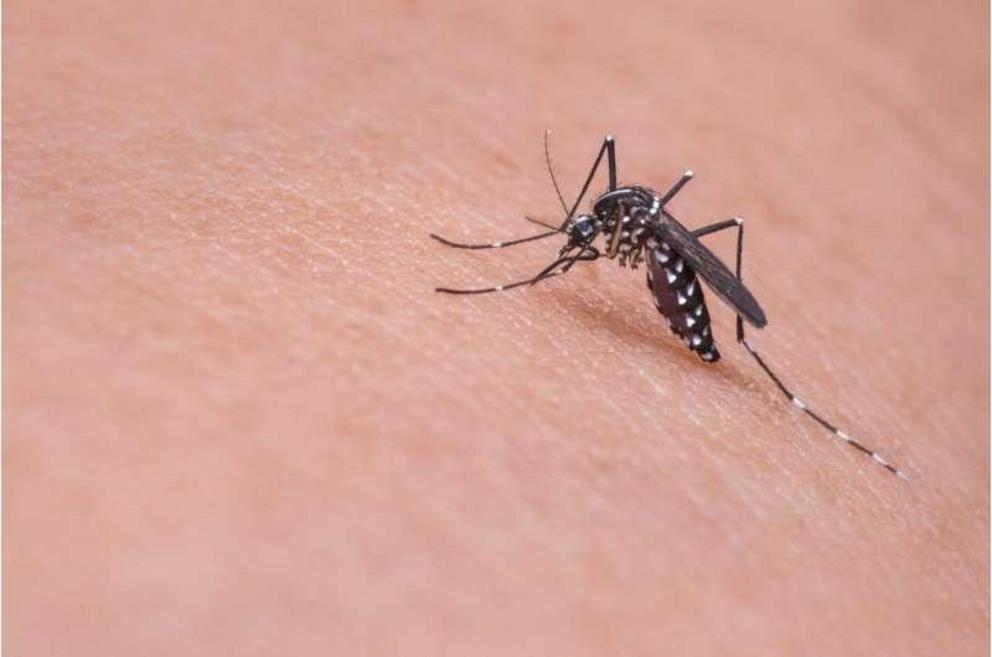What animal kills the most humans? Here's the unexpected predator and how to protect yourself
Between frightening movies like "Jaws" and tales about deadly animal encounters, some fear the wild animal kingdom because of potential danger.
According to a 2015 poll from Ipsos, about half of Americans said they were "absolutely terrified" of sharks, and almost 40% said they're scared to swim in the ocean because of sharks. But according to the Florida Museum of Natural History, there were only 11 shark-related fatalities world-wide in 2021. You're more likely to be killed by a falling coconut, the Australian Institute of Marine Science writes.
But when it comes to dangerous animals, which species kills the most?
What animal kills the most humans?
While larger animals like sharks or hippos may seem a likely culprit, the animal that kills the most humans per year is actually the mosquito.
Mosquitoes can transmit life-threatening diseases like malaria and dengue, and the World Health Organization estimates mosquitoes that carry these diseases kill 725,000 people a year.
Mosquitoes carry many threatening diseases, like chikungunya, dengue, lymphatic filariasis, Rift Valley fever, Yellow fever, Zika, malaria, Japanese encephalitis and West Nile fever, WHO reports. Other insects, like fleas, lice and ticks, also transmit similar diseases.
After mosquitoes, these animals are most deadly to humans each year, according to Discover Wildlife:
- Freshwater snails: 200,000 deaths per year
- Saw-scaled viper: 138,000 deaths per year
- Assassin bugs: 10,000 deaths per year
- Scorpions: 2,600 deaths per year
- Ascaris roundworms: 2,500 deaths per year
- Saltwater crocodiles: 1,000 deaths per year
- Elephants: 500 deaths per year
- Hippopotamus: 500 deaths per year
How to protect yourself from mosquitoes
Mosquito deaths occur in some regions more than others. For example, African countries make up about 96% of malaria deaths, according to WHO.
Dengue, chikungunya and malaria are also prevalent in Southeast Asia. WHO recommends steps for limiting breeding opportunities and human contact for monsoon season:
- Monitor and disrupt standing water in gutters, uneven concrete, potted plants or spare tires on a weekly basis
- Discard waste in sealed plastic bags and ensure trash is collected regularly
- Fit water storage containers with tight lids and use fine-mesh coverings on storage vessels
- Wear light-colored, long-sleeve clothes, use insect repellent and sleep under a bed net
- Fit windows and doors with screens
- Use insecticide sprays or vaporizers in and around houses
Do humans kill more humans than mosquitoes?
Bill Gates' blog posted a graphic saying that humans kill 475,000 other humans a year, while mosquitoes kill 725,000. This post gained criticism and attention online in 2014 after it was posted, prompting a fact check by Vox, who argued that humans should have the number one spot.
While Vox agreed that mosquitoes pose a major health risk and tally a large death toll, they also argued that the number should include diseases passed from human to human, like HIV/AIDs and, more timely, even COVID-19. The article also added that this number could include air pollution, which is manmade but "gets tricky since the energy use that leads to pollution also boosts human well-being," Vox reports.
What animal has the strongest bite force?
Animals don't have to kill to still be dangerous. A Florida State University lab found that Australian saltwater crocodiles have the strongest bite with a bite force value of 3,700 pounds.
This is the highest bite force ever recorded, but it's estimated that the largest extinct crocodilians, almost 40 feet in length, registered around 23,100 pounds of bite force, ScienceDaily reports.

